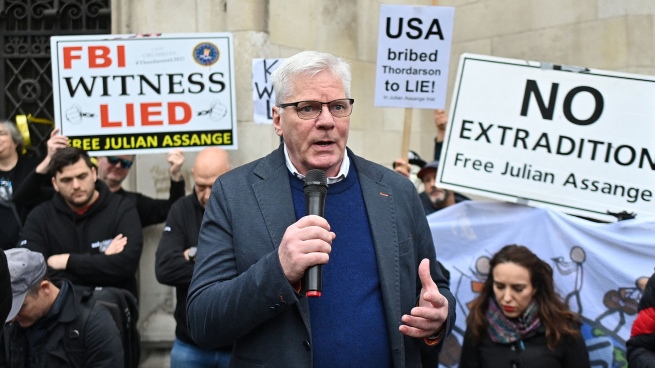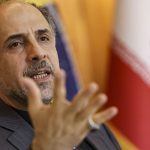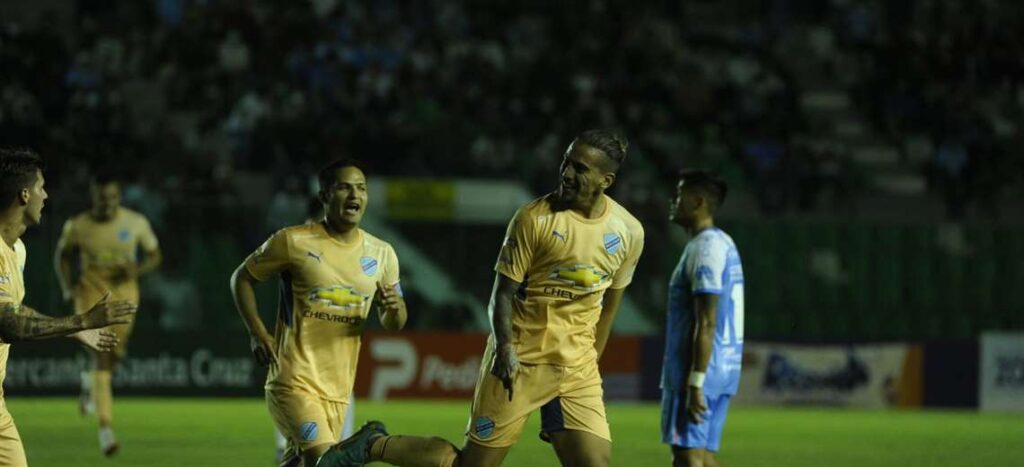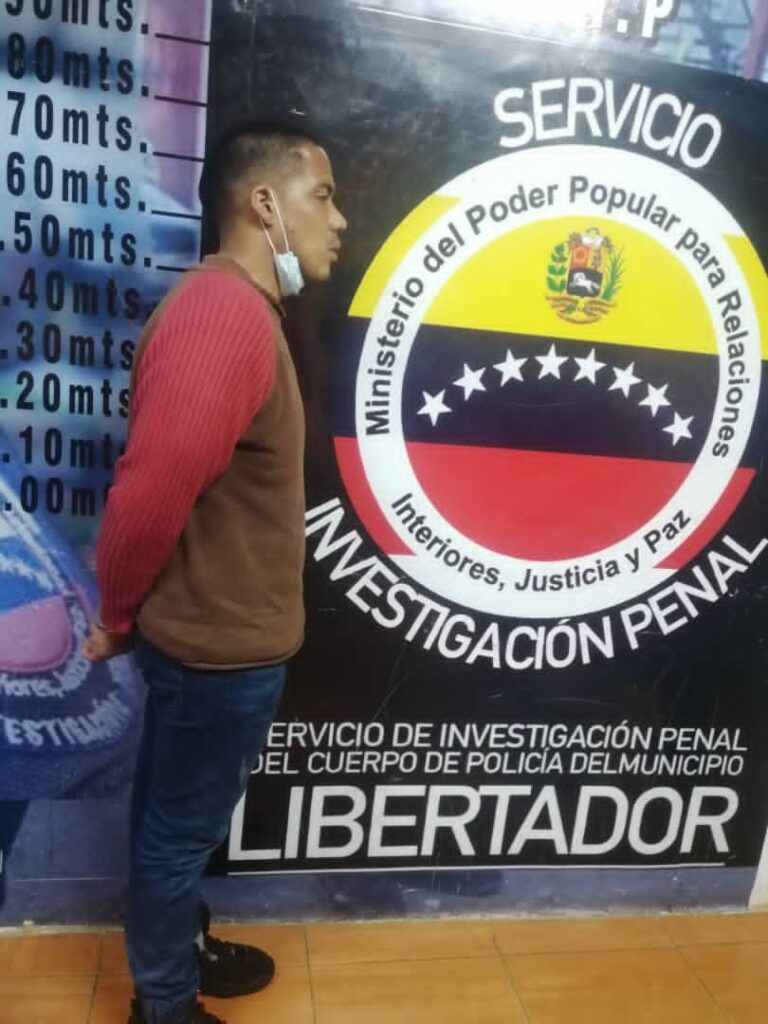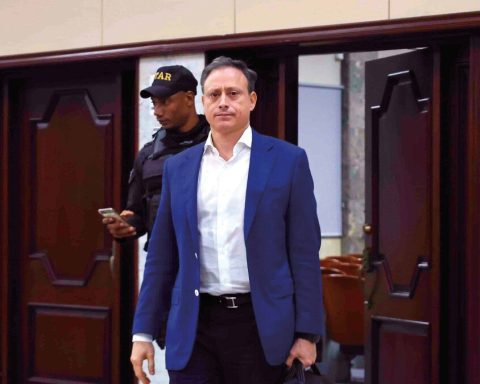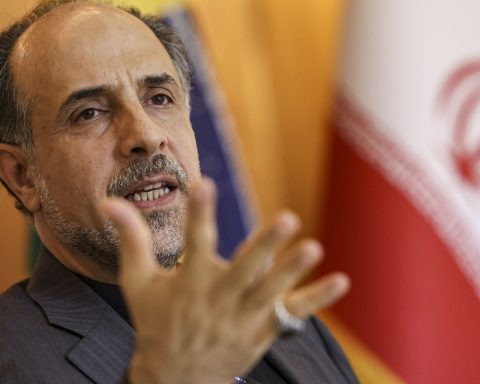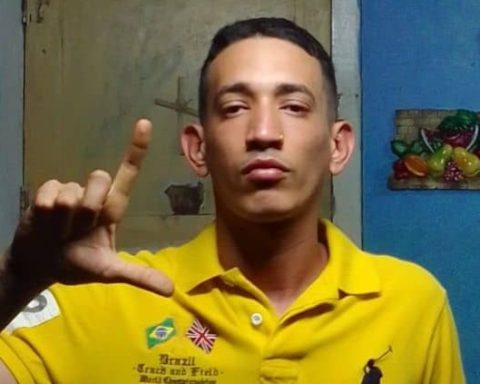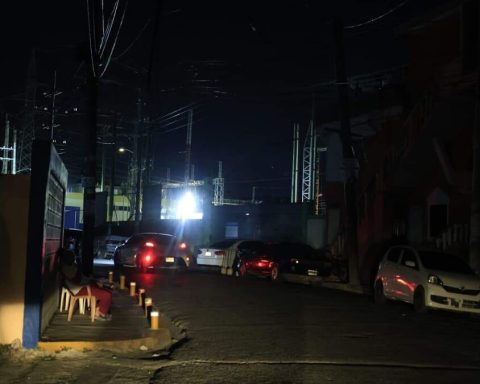The Icelandic journalist and editor-in-chief of WikiLeaks, Kristinn Hrafnsoon, told Télam that “the legal fight is still going on” to prevent Julian Assange from being extradited to the United States, warning that if the extradition is finalized, the fate of the cyberactivist “will depend on the position take the CIA”, which he considered behind a “revenge” against the Australian imprisoned in Great Britain, and announced that he will visit Buenos Aires in the “autumn” of the northern hemisphere, probably in “September or October”.
In a telephone interview from the city of Reykjavik, your place of residence, Hrafnsoon said that Argentina “is important” for the campaign for the release of Assange and said that since WikiLeaks have been “working with local (Argentine) journalists for more than ten years”, to then state that in the organization they know and value “the position of some of the country’s leaders” on the case.
With this last sentence, he alluded to the pronouncements of several Argentine leaders against the legal transfer of Assange to the US, including a tweet from the vice president Cristina Kirchner on June 18, in which the head of the Senate warned about the risk to life that this decision would imply and about the “alarming precedent for all journalists in the world”, who would be subjected to “discipline”.
Hrafnsoon spoke with Télam in the same week that Assange’s legal team appealed to the High Court in London the decision to extradite him to the UStaken on June 17 by British Interior Minister Priti Patel, a process that for the WikiLeaks founder’s lawyers includes two stages: a first presentation referred to “prison conditions in the US” and another focused on “the political aspects of persecution.”

“We hope that the appeal will be granted and then it will be a few months, but it will be the first time that a Court of Appeal will hear all the main arguments, because the violations (of human rights) against them are immense. He not only suffered espionage of his communications, theft of documents, probably breaking into the offices of his legal advisors in Madrid; We also know of the plot that the CIA hatched in 2017 to kidnap or even assassinate him inside the Ecuadorian embassy (in London), “he detailed to this agency.
The US demands the extradition of Assange to try him for the publication from the WikiLeaks platform of reserved communications from the armed forces of that country and diplomatic cables sent from the embassies of Washington in different countries of the world, among them the representation in Argentina, actions that for the American fiscal accusation that is processed in the Court of the Eastern District of Virginia should be punished with a sentence of 175 years in prison.
As for the US judicial obsession with the founder of WikiLeaks, Hrafnsoon attributed it to “revenge for the publications that shamed them and exposed their dirty secrets”, including “war crimes in Iraq and Afghanistan”, and assured that Washington “does everything possible, through manipulation and disinformation, to keep out of the public’s mind” the covert actions of its foreign and defense policy.
“When there was a change in Quito and (Lenin) Moreno came in, (Ecuador) took the absolutely unprecedented step of allowing a foreign police department to basically enter a sovereign embassy. (by the Ecuadorian representation in London, where Assange was taking refuge) to arrest someone. All it took was (then) Vice President (US Mike) Pence paying a visit a few times, helping to secure financial assistance through the IMF and World Bank,” the WikiLeaks editor-in-chief questioned.

-Télam: How long have you known Julian Assange?
-Kristinn Hrafnsoon: I first met him in Reykjavik, in my home country, in 2009. Towards the end of that year, Julian stayed in Iceland for quite some time, that winter, during 2009 and 2010. I was working as a journalist for Icelandic state TV, and we met and often had fascinating discussions about the state of the media. We come from very different backgrounds. But at the end of the day we spoke the same language. The idea of him and the creation of WikiLeaks aroused great interest in me. I thought it was a brilliant addition to the journalistic environment. And (Assange) started getting me involved in publishing. And the biggest one was the (US Army) helicopter video “Collateral Murder”, which was released on April 5, 2010. He was still working as a journalist on state TV. A few weeks later, I decided that I wanted to devote my full attention to this, as a member of the WikiLeaks team. So I quit my job and flew to London.
-T: How would you describe Assange’s legal situation at this time?
-KH: The legal fight continues. We hope that the appeal will be granted and then it will be a few months. It will be the first time that a Court will hear all the main arguments: a first presentation on the prison conditions in the US, but now we have the opportunity and a great legal team to immerse ourselves in the political aspects of the persecution. If he is extradited, Julian’s fate within the US prison system depends very much on the position the CIA takes. If the CIA demands that he be placed in total isolation, both before and after trial, if he is convicted, the Bureau of Prisons (by the Federal Bureau of Prisons) will have to do it. And we know that the CIA wants revenge and that the political forces below the surface are working hard against it. Basically, they wish him dead. All this will come to light in the courts of London. This is the legal fight and it will continue for some months. There are still ways such as the appeal. In the UK Supreme Court and the European Court of Human Rights (ECHR). This is the formality and the fight ahead for the next month.
-T: How is Assange’s health at the moment?
-KH: His health has been declining and it is not surprising, considering that he has been in a maximum security prison for more than three years. And the conditions in that prison, which is the worst in the United Kingdom (because of the Belmarsh prison). There seems to be a special dedication from the UK prison authorities to make your life as difficult as possible. Julian will not be given any respite and will strive to make things worse. I can give you an example: After Priti Patel announced her decision to approve extradition, the prison authorities at Belmarsh Prison decided to take Julian aside, strip search him, and isolate him in a cell for the entire weekend. He has lost weight, is thin and increasingly frail. He doesn’t get enough exercise because he has limited space. He can only spend half an hour in the open air, if they allow it. The only thing these proceedings in the UK have shown is that the legal arguments are so empty that everyone can see that this is persecution.
-T: What would be the effect of extradition on your health?
-KH: That is quite clear. And here I want to say something that has not been refuted, because in a UK court a very prominent psychiatrist testified, after meeting and speaking with Julian, that he was at serious risk of suicide. That is the effect of knowing that they are going to take you away, that you are going to be in preventive detention, probably in total isolation, and that you have 175 years in prison ahead of you. As for the impact on the functioning of WikiLeaks, the prospect of his extradition is, of course, devastating.
-T: What do you think has been the contribution of WikiLeaks in global journalism?
-KH: I have always said that WikiLeaks, by itself, is not as important as the ideal of WikiLeaks, which has already had an effect on journalism. For example, the International Consortium for Investigative Journalism published the Panama Papers. The idea was out there and WikiLeaks multiplied it, and it will stay alive one way or another because you can kill an individual but you can’t kill an idea. This is the reason why many human rights organizations that defend a free press have condemned extradition, such as Amnesty International or Reporters Without Borders, among many others. For the Americans to mix journalism with espionage, as they are trying to do, implies that anyone could be next. They are taking on an individual who is not American, who did not publish in the United States, and who is a regular member, with a credential, of a journalists’ union. It is a very serious threat to journalism, because it would set standards for other countries: if the Americans can do this, why can’t we?
